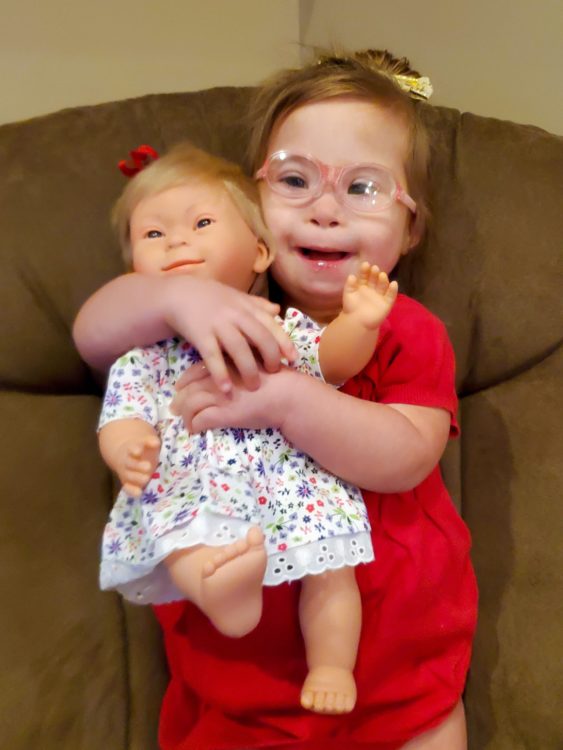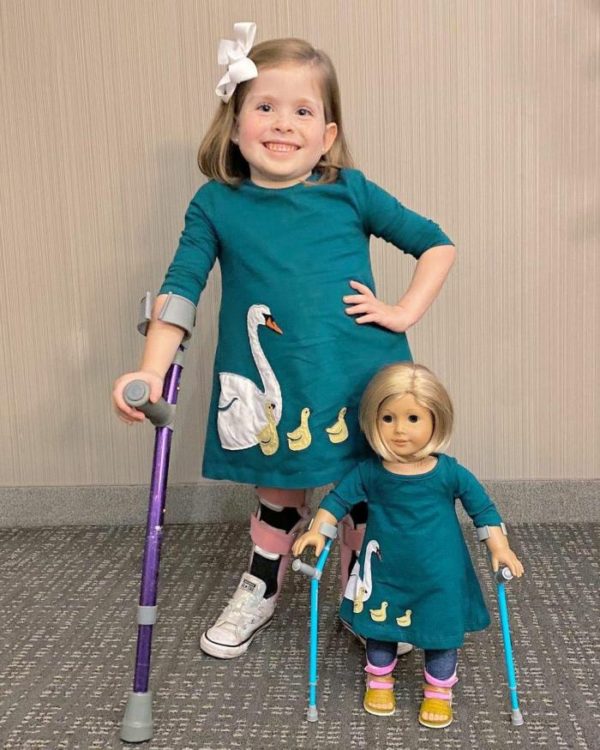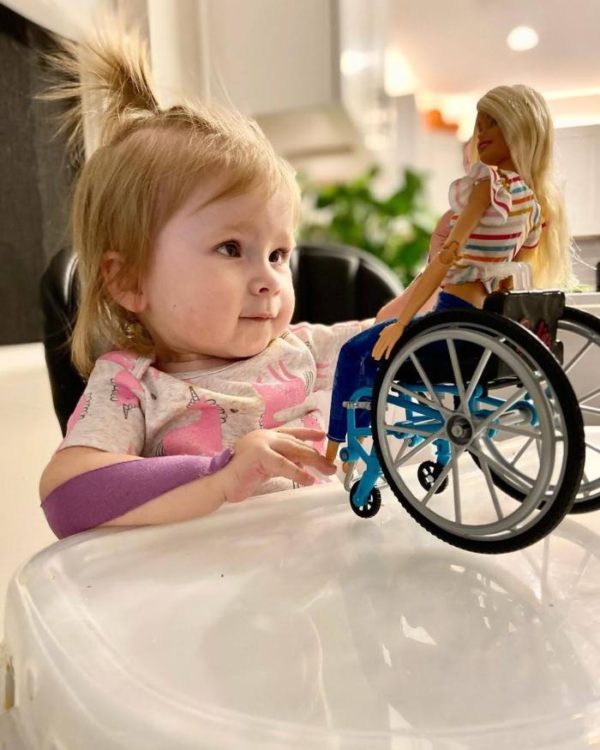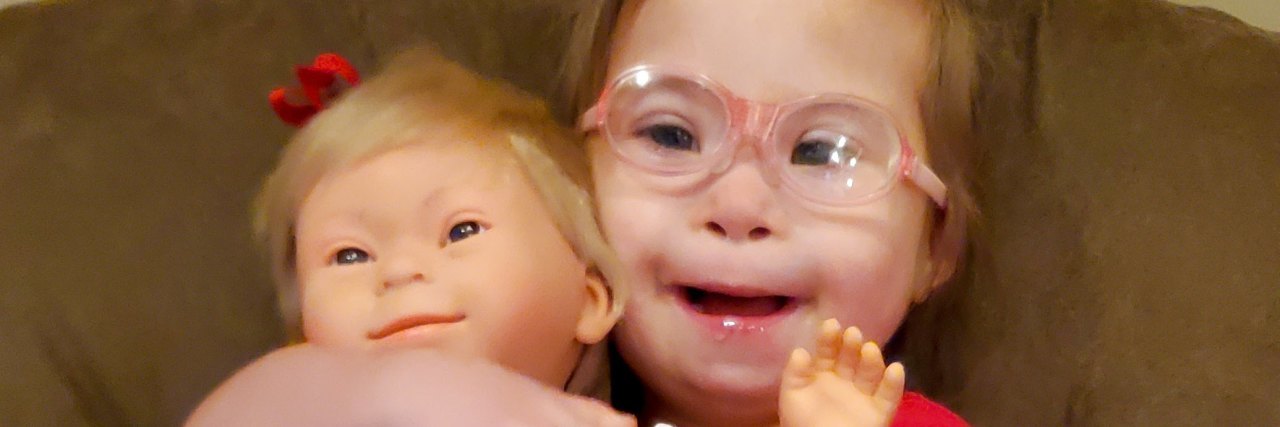Representation. Every single human being deserves to see somebody who looks like them in movies, books, commercials and toys. Unfortunately for far too long, that has not been the case. People of all races, abilities, body types, genders, religions, etc. need to be represented in what we watch, read and play with. Recently we are seeing small steps to remedy this problem in the media and I so appreciate that! Representation matters!
Imagine being a child with a disability and all you ever see are typical, able-bodied children. What message does that send you about yourself? That you are “abnormal.” That you are not worthy of being shown to the world. I know you’re reading this cringing inside, because of course no child should ever be made to feel that way.
Lack of representation also hurts those children who are represented. They grow up with the incredibly skewed perception that everybody looks like them, and anybody who doesn’t isn’t “normal” and should be feared. That, my friends, is how racism and ableism can be perpetuated in our kids without us even realizing it. Representation matters!
Now imagine that same child seeing commercials, advertisements, characters in movies and books, and dolls made to look like them. What an inclusive message that sends. You are a human, worthy of being included! You are human, just like everybody else! Representation matters!
Look at these beautiful girls. Each one is represented by a doll that looks like them.
Ivy has Down syndrome. Her doll looks just like her with almond-shaped eyes and a button nose.

Our friend Eliza has spina bifida. Her doll has forearm crutches (or “sticks” as Eliza calls them) just like her.

Our friend Stella has spinal muscular atrophy. Her Barbie doll has a wheelchair just like her.

Look at their faces. Pride at having a toy just like them. Imagine a typical child who had one of these dolls at home among their other dolls. Imagine how they might react to seeing a person with Down syndrome, or forearm crutches, or a wheelchair. All of the sudden, that person is just another person. Their differences have already been validated and explored by that child through play. That child will be much more likely to say “Hi” and ask a name rather than point and stare. Representation matters!
So what can you do? Let brands know when you appreciate their inclusivity. Let brands know when you believe they need to make a change. Buy toys like this for your able-bodied, typical children. Let them play with toys that represent all types of humans. Representation matters!

